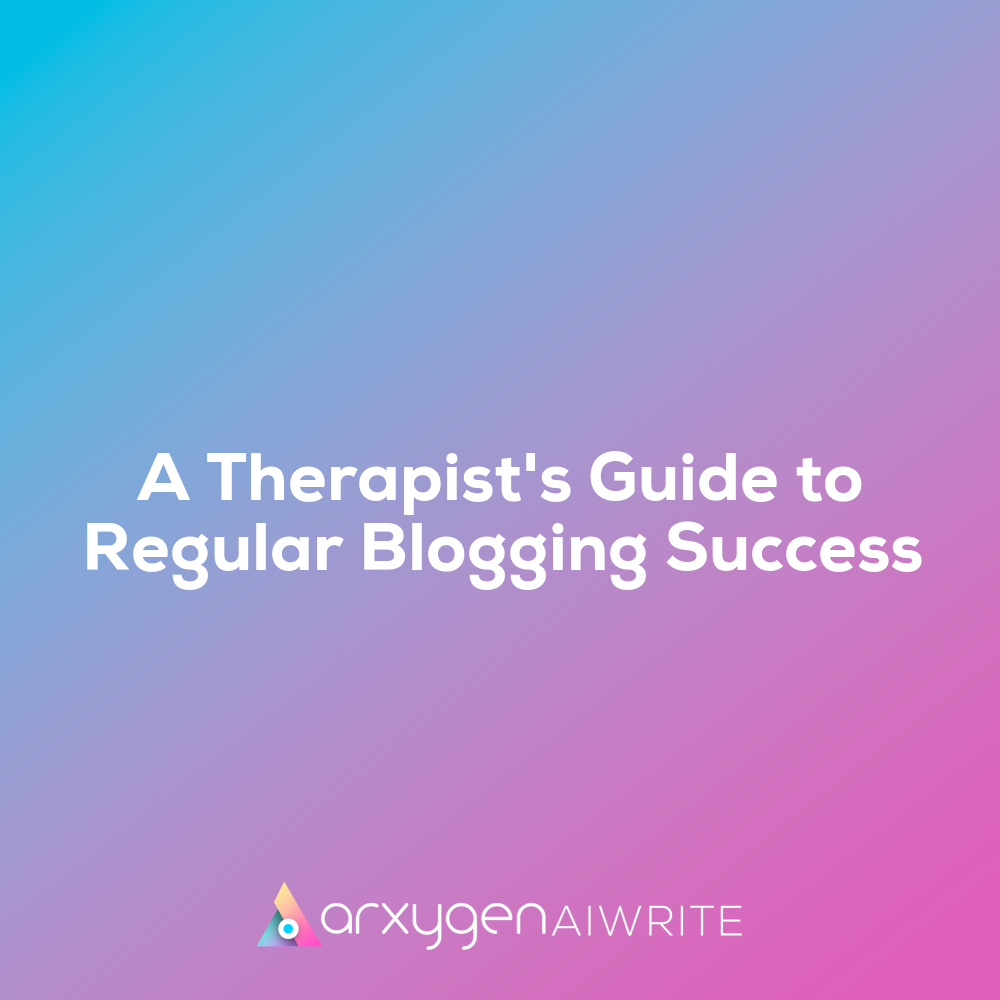Let’s Chat About Why Blogging is Great for Therapists
Writing can be a powerful tool for self-reflection and self-discovery. When therapists blog, they often find clarity in their thoughts. Each post becomes a mini-therapy session, allowing them to explore their feelings and insights. It’s like having a conversation with oneself, where every word helps to untangle complex emotions.
Building Connections Through Regular Blogging
Moreover, consistent blogging can significantly enhance client engagement. When therapists share their experiences and insights online, clients feel more connected. It fosters trust and creates an open dialogue. For instance, a therapist might write about their journey with mindfulness. This not only showcases their expertise but also invites clients to participate in similar practices.
Through regular posts, therapists can establish themselves as relatable figures, making it easier for clients to approach them. When clients see their therapist’s authentic voice, it humanises the therapeutic relationship. Blogging becomes a bridge, transforming the typical client-therapist dynamic into a collaborative journey of growth.
How to Tell Stories That Connect with Your Readers
When it comes to blogging, storytelling is your secret weapon. It’s not just about sharing information; it’s about creating a connection. Think of it this way: when you share a story, you invite your readers into your world. They see themselves in your experiences, making the content relatable and impactful.
Finding Topics That Matter to Your Audience
Identifying topics that resonate with your audience can feel daunting. Start by listening. What are the common concerns or questions people bring up in therapy sessions? Maybe it’s anxiety about work-life balance or challenges in relationships. These are golden opportunities for blog posts.
Consider hosting informal chats on social media or creating quick polls to gauge interests. You might be surprised at how open people are to sharing their needs. Once you have a list of potential topics, think about how you can weave in personal anecdotes or relevant case studies (while maintaining confidentiality, of course). This approach not only enriches your content but also establishes trust.
Remember, your readers are looking for guidance and understanding. By sharing stories that reflect their struggles, you’re not just writing; you’re providing support. You’re showing them they’re not alone in their journey, which can be incredibly powerful.
Mastering Your Blogging Routine
Finding time to blog can feel daunting for busy therapists. However, with the right tools and strategies, you can streamline your process and achieve blogging success.
Tools to Make Blogging Easier
Consider using these resources to enhance your blogging experience:
- Content Calendars: Plan your posts in advance to stay organised.
- Writing Apps: Tools like Grammarly can help refine your content.
- Social Media Schedulers: Automate sharing to reach a wider audience.
- Image Libraries: Use free resources like Unsplash for visuals.
- Analytics Tools: Track your blog’s performance and adapt strategies.
- Note-Taking Apps: Capture ideas on the go with Evernote or OneNote.
- Online Courses: Improve your writing skills with platforms like Coursera.
- Peer Groups: Join blogging forums for support and feedback.
Setting realistic goals is also crucial. Aim for one post a week, allowing time for reflection and growth. Remember, consistency is key, but so is balance!

